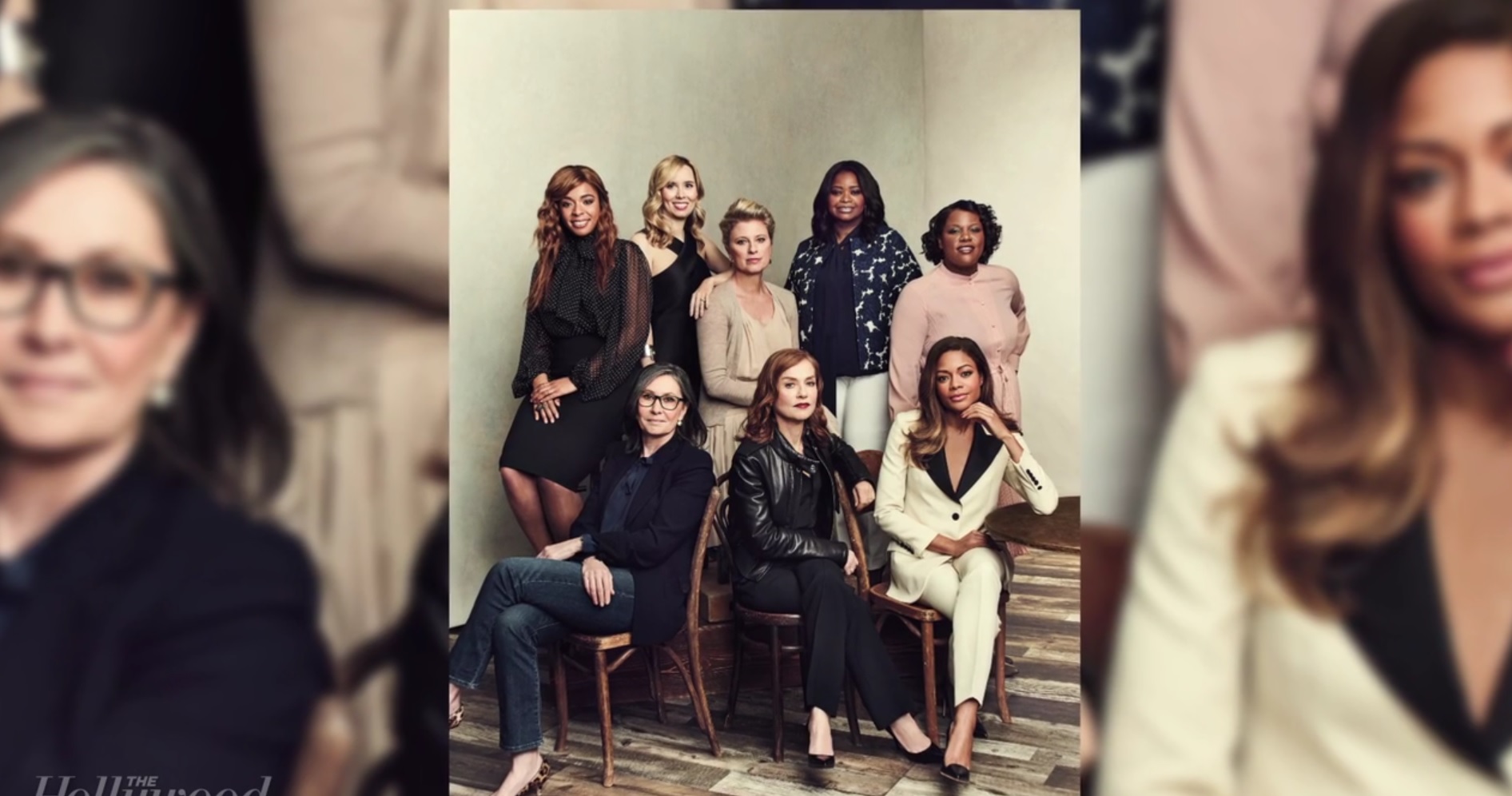Record Number of Producers Nominated For This Year’s Best Picture Oscar Are Women—Here’s What They Have to Say About Women In Film
#OscarsSoMale

The Oscars are coming up in a little over a week, and thankfully the ceremony won’t as white as it’s been in the past. With Hidden Figures, Moonlight, Fences, and Lion all nominated for Best Picture, actors like Denzel Washington, Ruth Negga, and Viola Davis nominated for acting awards, and Moonlight‘s Barry Jenkins nominated for Best Director, there has been some progress made. Where less progress has been made is in the area of female filmmakers.
The Hollywood Reporter recently interviewed some of the female producers, writers, and actresses associated with this year’s Best Picture nominees, and they are quick to point out the historic firsts this year, like the black women nominated in documentary feature (Ava DuVernay for 13th) and editing (Joi McMillon for Moonlight) and the first female team to be nominated in sound (Ai-Ling Lee and Mildred Iatrou Morgan for Best Sound Editing on La La Land).
They are also part of a historic number, as a record nine producers responsible for the Best Picture nominees are women: Donna Gigliotti and Jenno Topping on Hidden Figures, Carla Hacken and Julie Yorn on Hell or High Water, Kimberly Steward and Lauren Beck on Manchester By the Sea, Adele Romanski and Dede Gardner on Moonlight, and Angie Felder on Lion.
Several of them talked about what’s great about being a female filmmaker right now, particularly when it comes to producing. Hacken, whose Hell or High Water is definitely not a female story, thinks that, regardless of story, women make better producers, saying, “Smarts and determination are gender blind, but I do think women make great producers for all sorts of reasons that will sound like reverse sexism.” Her producing partner, Yorn, hones in on the fact that, much like most of the work women are expected to do, “At times it’s thankless, and you have to be egoless. I’m a mother of a teenager, and it’s very similar to that.”
Topping zeroes in on specific skills: “I hate to generalize, but I do think women have an ability to multitask in a graceful way. I also think they understand a little more naturally how to get the best out of people.”
Female producers are also more likely to bring other women onto projects and tell female stories. Says Gigliotti, “It is incumbent on women producers to make movies about women for a variety of reasons. One is, if we don’t do it, who will? Secondly, from a purely economic point of view, I just proved [with Hidden Figures] that if you put women in the lead of a movie you can make over $100 million.” (That film’s domestic gross? $132 million and counting…) The crew on Hidden Figures was 33% women, which is a lot when you consider that the average Hollywood film’s crew is 12% women.
Steward believes that the nine of them “[show] that women are able to greenlight projects and give directors, DPs and other female filmmakers more opportunities,” while her producing partner, Beck, says, “We are hoping to set our own rules.”
Hopefully, those rules will star to include hiring more female directors, the area most sorely in need of a change. Only 4% of the 1,000 top-grossing films in the past 10 years were directed by women. Says Topping, “Directing is really tricky; it’s a very hard lifestyle with all sorts of hardships that aren’t true with other fields. But I still think we have to hire, hire, hire. [Some female directors] don’t know it can work. But there’s always a way you can do it.”
The film she’s nominated for, Hidden Figures, was directed by Theodore Melfi. *sigh* I’m assuming that hire, hire, hiring is gonna start any day now.
(featured image via screenshot)
—The Mary Sue has a strict comment policy that forbids, but is not limited to, personal insults toward anyone, hate speech, and trolling.—
Follow The Mary Sue on Twitter, Facebook, Tumblr, Pinterest, & Google+.
Have a tip we should know? tips@themarysue.com